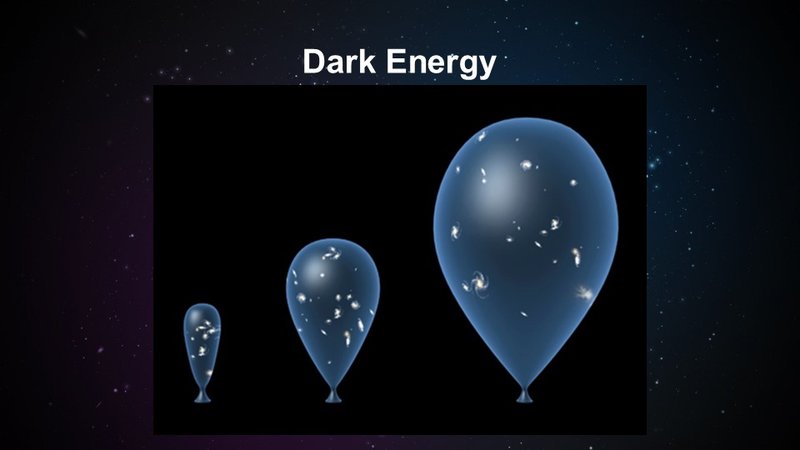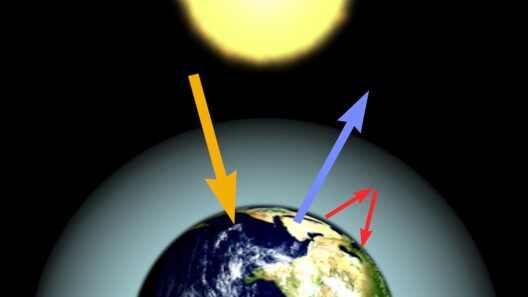In the vast expanses of our universe, dark energy emerges as a perplexing and elusive phenomenon. Spanning the fabric of cosmic existence, dark energy represents approximately 68% of the total energy density of the cosmos. Its influence is profound, driving the accelerated expansion of the universe. Yet, despite its omnipresence, dark energy engenders considerable debate, particularly regarding its implications for fundamental principles of physics, including the conservation of energy. Does the existence of dark energy contradict this foundational law, or is there a deeper understanding to be gleaned?
As we embark upon this exploration, it is crucial to delineate what dark energy is and how it came to be a focal point of cosmological research.
Understanding Dark Energy
At the heart of cosmological inquiry lies the concept of dark energy. This enigmatic force is not simply another form of matter but represents a unique component of the universe’s energy budget. Predominantly associated with the vacuum of space, dark energy appears to exert a negative pressure—one that disallows the deceleration of cosmic expansion. The pioneering cosmological model that incorporated dark energy was the Lambda Cold Dark Matter (ΛCDM) model, where the “Lambda” (Λ) term denotes the enigmatic energy associated with the vacuum of space itself.
Outside observations, particularly of distant supernovae, have bolstered the contention that the universe’s expansion is accelerating. As galaxies drift apart at an increasingly rapid pace, dark energy stands as the primary candidate accountable for this phenomenon. However, the alluring nature of dark energy is enveloped in the shadows of uncertainty; its precise origin remains one of the most pressing mysteries in modern physics.
Conservation of Energy: A Pillar of Physics
To assess whether dark energy challenges the principles of conservation, it is essential to first understand this cornerstone of physics. The law of conservation of energy dictates that within an isolated system, energy cannot be created or destroyed; it can only change forms. This principle has guided scientific inquiry and understanding, providing a framework through which energy interactions are analyzed in myriad contexts, from mechanical systems to thermodynamic processes.
Inserting dark energy into this paradigm poses an intriguing conundrum. With dark energy uniformly dispersed throughout the cosmos, does it imply the creation of energy in regions where space expands? Addressing this question necessitates a robust exploration of contemporary cosmological models and the implications of an expanding universe.
Dark Energy Dynamics
The interplay of dark energy with the geometry of spacetime offers a unique vantage point from which to examine its effects. The Friedmann equations, invoked in the field of cosmology, illuminate the relationship among various energy components, including dark energy, matter, and radiation. These equations elucidate how gravitational dynamics evolve over cosmic timescales, and their consideration leads to the realization that while dark energy contributes to the overall energy density, it does so without breaching conservation laws.
As dark energy permeates space, it maintains a constant density despite the expansion of the universe. This constancy is paramount; it suggests that dark energy does not manifest as a violation of conservation. Instead, it can be viewed as a form of energy that exists intrinsically within the vacuum of space, flickering with the cosmos as it expands. As new regions of space come into existence, dark energy appears to stretch along with it, thereby avoiding the creation of additional energy. This dynamic requires a refined understanding, one that harmonizes the conservation of energy with the peculiarities of cosmic evolution.
The Role of Quantum Field Theory
Progress in our comprehension of dark energy’s implications rests on the advancements in quantum field theory. From a quantum perspective, the vacuum teems with virtual particles that spontaneously emerge and annihilate. This phenomenon provides a fertile ground for linking dark energy to quantum fluctuations. Some theoretical physicists posit that the energy contributed by these fluctuations can account for the enigmatic dark energy density observed; however, the scale of quantum contributions often leads to paradoxes that defy our current interpretations of energy conservation.
Through this lens, dark energy does not violate traditional notions of conservation. Rather, it encourages a reconciliation of quantum mechanics with cosmological principles, urging a more nuanced approach to understanding how energy operates at various temporal and spatial scales.
Philosophical Implications of Dark Energy
The discourse surrounding dark energy extends beyond the realms of physics into philosophical contemplation. If acceding to the notion that dark energy is inherently bound to the expansion of the universe, we must ask ourselves what this means for our broader understanding of existence and reality. Does conceptualizing dark energy as a perpetual source of energy alter our relationship with the cosmos? Can it inform us about the future trajectory of the universe and its ultimate fate?
In contemplating the ramifications of dark energy, we give rise to profound questions about the nature of space, time, and the very fabric of reality. While its existence may challenge certain aspects of established science, it also ignites a quest for knowledge that could redefine human understanding of existence itself.
Conclusion: Embracing the Complexity of Dark Energy
In navigating the intricate labyrinth of dark energy and its potential impact on the principles of conservation, we uncover a tapestry rich with complexity and wonder. Dark energy may not violate the conservation of energy; instead, it invites contemplation of the very constructs we take for granted in our understanding of the universe.
As we continue to delve into the mysteries of dark energy, we foster an appreciation for the expansive cosmos and its intricate dynamics. The universe, with all its enigmas, urges us not only to ask questions but also to remain open to the knowledge that lies on the horizon of scientific discovery. Embracing this complexity, we advance towards a more profound comprehension of the universe and our place within its vast continuum.






